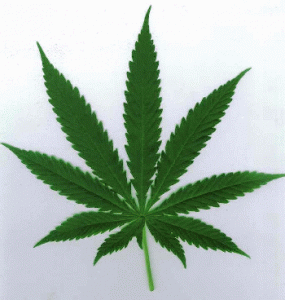Cannabis, otherwise known as marijuana, and its potential use in the treatment of various diseases and symptoms (“medical marijuana”), has been all over the news in the last few years, getting a recent boost from media craze surrounding the total legalization of marijuana in two US states earlier this year. Many countries have already approved the use of medical marijuana, mostly for the treatment of pain, from headaches to long-term conditions like glaucoma or nerve pain. It is also used to treat muscle spasms caused by multiple sclerosis, nausea from chemotherapy, Crohn’s disease, and more. Recently, the potential use of cannabis in the treatment and management of Diabetes has been researched.
Until recently, the common notion was that cannabis decreases energy expenditure and increases food intake and fat storage due to raised appetites (what is known as “munchies”), in addition to impaired glucose tolerance. However, a growing body of evidence is pointing to medical marijuana as useful for managing Diabetes symptoms such as pain and cardiovascular disease as well and combating the disease itself. There are a number of ways that marijuana may one day come part of diabetes treatments, though the current data is only preliminary and primarily based on surveys and must be validated by clinical trials.
Cannabis and Obesity
It is commonly known that obesity and Type 2 Diabetes go hand in hand. Large scale surveys have shown lower rates of obesity, BMI and diabetes among marijuana users compared to non-users. Furthermore, an observational study published in 2013 by Harvard University researchers (published in The American Journal of Medicine) found that marijuana users had lower waist circumferences despite consuming more calories. The study collected data from over 4,500 adults during a 5 year period. So it seems that marijuana plays a role in regulating energy balance. Associate professor Dr. Murray Mittleman from Harvard Medical School told Time magazine that “current users of marijuana appeared to have a better carbohydrate metabolism than non-users”.
Cannabis and Insulin
The increased carbohydrate metabolism probably has to do with the effect of marijuana on Insulin. In the Harvard study they found that adults who used marijuana had lower fasting insulin levels and a lower probability of being insulin resistant. Beta cells that produce insulin in the pancreas have receptors for the active compounds in marijuana, further supporting that there is a connection there. Clinical trials performed in the UK have showed promise in preserving those Beta cells. Many studies are being performed on mice to further research that connection.
Cannabis and Cardiovascular Disease
Recent studies also suggest a role of marijuana in cardiovascular complications related to diabetes. It turns out that there are also receptors for the active compounds in marijuana in the cardiovascular system and immune cells that affect the system. Marijuana users also had higher levels of HDL (“the good cholesterol”) which can protect against heart disease.
Cannabis and Neuropathic Pain
Approximately 60-70% of people with Diabetes suffer from nerve damage which can lead to neuropathic pain. Neuropathic pain is one of the few applications of medical marijuana to be studied in clinical studies. Sativex- a cannabis-derived oral spray- has been approved in various countries for the treatment of cancer and multiple sclerosis-derived pain.
Before anyone gets too excited, researchers don’t yet know how to explain these possible effects on Diabetes, and since some of the evidence comes from survey-based studies and not controlled trials, it’s not clear whether marijuana or some other factor actually accounted for the results. Researchers can’t be sure that marijuana will shed light on understanding how to best control glucose and insulin to prevent or treat diabetes. But what is clear is that marijuana’s connection to Diabetes will be in the spotlight of research in the future.
By Liran Julia Grunhaus








